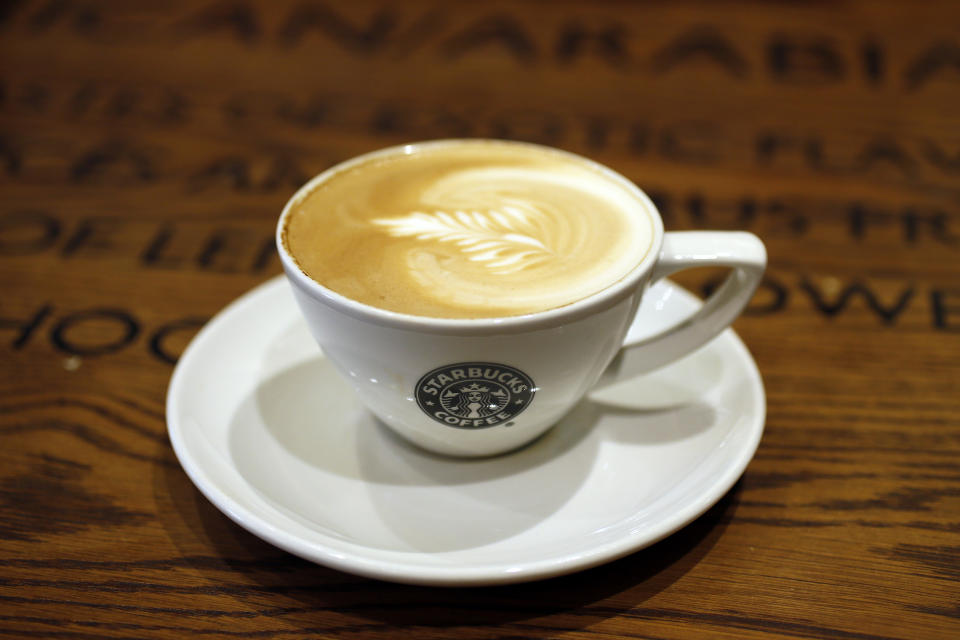Starbucks, Dunkin' in the clear as California judge tosses suit alleging coffee-cancer link
This week, a 10-year legal battle over coffee hit a dead end.
About 90 sellers, manufacturers, and distributors of coffee products — from Starbucks (SBUX), to Dunkin’ Donuts (DNKN), to Walmart (WMT), to Costco (COST) — had been embroiled in defending a lawsuit alleging that coffee products should be labeled for a suspected cancer-causing toxin.
However, a California Superior Court judge tossed the case out of court on Tuesday, which — at least for now — closes the book on the controversial argument.
The decades-old claim first surfaced in 2010, launched by the Council for Education & Research on Toxics (CERT), a non-profit organization located in Long Beach founded in 2003.
An attorney for the organization, Raphael Metzker — who is also listed as the non-profit’s contact of record — argued that a chemical called acrylamide should be included in product warnings, based on research showing that it causes cancer in laboratory animals.

The compound is found in roasted, brewed coffee, as well as other commonly cooked foods that are rich in carbohydrates and sugar, such as baked bread, cookies, and especially potato chips. However, the question as to whether coffee poses a risk is unsettled science, as meta-analysis showed no increase in the incidence of cancer in people that consume large quantities of coffee.
“When you heat the carbohydrates and sugar up together the heat causes the amino acids in the sugar to cause a reaction that forms a compound that turners into acrylamide in the food,” University of California Davis professor and food toxicologist Alyson E. Mitchell told Yahoo Finance. “It is a very common reaction.”
Asked whether the chemical is toxic to humans, Mitchell said, “The bottom line is we don’t know.”
Mitchell said one theory that could explain why animal studies showed clear signs of acrylamide-linked cancer is that the doses given to animals were significantly higher than the levels ingested by humans.
“By feeding the animals high doses, you’re stripping away their ability to detoxify the acrylamide. If you are consuming coffee in low amounts, like in a cup of coffee, the body’s enzymes do break down the toxin, she said. “This goes to the age old question in toxicology: Do high dose exposures in animals relate to low dose exposures in humans?”
Asked where coffee falls in the spectrum of cooked foods containing acrylamide, Mitchell said coffee is “up there” because it has a lot of glucose and a lot of asparagine. However, wide-ranging levels of acrylamide occur even coffee to coffee based on factors that include origin of the beans, roasting time, roasting temperature, brewing temperature, extraction technique, and freshness.
Coffee falls in a range from 5 parts per billion, in brewed coffee, to 4,000 parts per billion in coffee substitutes and instant coffees, Mitchell said. While there is no industry standard for acrylamide food levels considered safe versus toxic, she said, the food industry is largely focused on transitioning products to to fall at or below 200 parts per billion, and the EPA has set a permissible level of acrylamide for drinking water at 1.5 milligrams, per liter, per day, or 1.5 parts per billion.
In granting the defendants’ motion for summary judgement on Tuesday, the judge agreed that a recent regulation from the California Office of Environmental Health Hazard Assessment (OEHHA) exempted the companies from having to warn of the risk under the state’s Proposition 65.
"Exposures to chemicals in coffee, listed on or before March 15, 2019 as known to the state to cause cancer, that are created by and inherent in the processes of roasting coffee beans or brewing coffee do not pose a significant risk of cancer," OEHHA stated in the proposed amendment to the regulation.
In earlier phases of the dispute, a California judge ruled that Starbucks and its other co-defendants would have to issue the proposed warning labels with their coffee. However, Tuesday’s decision relied on the OEHHA’s determination that the link between java and cancer was not significant enough to require cancer warning labels.
Mitchell said without more definitive science to show how human bodies detoxify levels of acrylamide, too many warning labels could have an unintended consequence.
“If you brew coffee it’s going to have acrylamide in it,” Mitchell said. “To put warnings on everything could have a dilution effect where people become desensitized to the warning.
Alexis Keenan is a legal reporter for Yahoo Finance and former litigation attorney.
Follow Alexis Keenan on Twitter @alexiskweed.
Find live stock market quotes and the latest business and finance news
For tutorials and information on investing and trading stocks, check out Cashay
Follow Yahoo Finance on Twitter, Facebook, Instagram, Flipboard, LinkedIn, and reddit.
